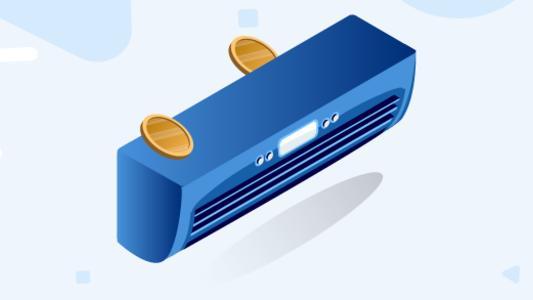Ways to Improve TV and Computer Energy-Efficiency

Entertainment systems and appliances cover a broad range of products, including televisions, computers and computer monitors, audio speakers, and gaming systems, and are things we use almost every day. While catching up on the latest show on Netflix, or gaming with friends for a few hours, might seem like a great way to pass the time, it’s also a great way to increase your energy bill. Find out how your streaming, surfing, and gaming habits influence your energy consumption and ways to reduce your energy usage, by reading more below.
Energy-efficient TVs and computer ratings
In Australia, certain home appliances, including entertainment systems, are subject to regulation and energy efficiency requirements before being able to be sold. This regulation includes Minimum Energy Performance Standards (MEPS), which specify the minimum energy performance level an appliance needs to meet, and/or an Energy Rating Label.
| MEPS | Energy Rating Label | |
|---|---|---|
| Televisions | ||
| Computers | ||
| Computer monitor | ||
| Videogame consoles |
An Energy Rating Label is a star-rating system used in Australia so consumers can quickly compare different home appliances to find the more energy-efficient choice. This label comes with either 1-6 or 1-10 stars, with each star meaning a higher energy efficiency rating. When it comes to home entertainment products, such as TVs or computer monitors, it’s important to consider that these Energy Rating Labels can only be used to compare appliances of the same size. For example, you could compare two 55-inch televisions, but not a 55-inch and a 60-inch television.
When comparing energy efficiency, it’s also important to consider the energy consumption of your television, computer, or other home entertainment product. If, for example, two 55-inch televisions have a 6-star Energy Rating Label, but one uses 500kWh per year, and one uses 550kWh per year, you’ll want to choose the television that uses 500kWh per year because while it has the same energy efficiency rating, it uses less energy overall.
Why should I care if my TV or computer is energy efficient?
Choosing an energy-efficient product can reduce your energy bill, plain and simple. Energy efficiency is rated based on how much energy your appliance uses per year: the more energy efficient it is, the less energy you use. This directly translates to spending less money on your energy bills.
Energy-efficient appliances, no matter if they’re a refrigerator, dishwasher, or clothes dryer, usually cost more upfront than choosing a less efficient model. However, that cost is often recouped over the lifetime of your appliance, as you spend less energy using it. Not only this, but energy-efficient appliances are also better for the environment. Reducing your carbon emissions, even by a little, can add up to a lot.
Energy consumption of TVs and computers
Home entertainment products, such as TVs and computers, might not seem like they use a lot of energy. However, choosing a more efficient home entertainment appliance can save you hundreds of dollars over their lifespan. Below is a table of the energy consumption and cost of different sized televisions and computer monitors, with different energy efficiency ratings, so you can see just how much you’d save switching to a more energy-efficient model. It’s important to note that these are based on averages, including average usage and average energy rates, and your lifestyle and habits will affect these numbers.
| TV size | Energy Rating Label | Annual Energy Usage | Annual Energy Cost |
|---|---|---|---|
| 40-inch | 3-star | 273 kWh per year | $83.85 per yea |
| 50-inch | 3-star | 419 kWh per year | $128.74 per year |
| 40-inch | 5-star | 175 kWh per year | $53.66 per year |
| 50-inch | 5-star | 268 kWh per year | $82.40 per year |
| 50-inch | 6-star | 215 kWh per year | $65.92 per year |
| 60-inch | 6-star | 306 kWh per year | $93.92 per year |
Source: energyrating.gov.au. Based on an average usage of 2hrs/weekday and 4hrs/weekend day. Average energy usage rate of 30.7c/kWh.
| Computer monitor size | Energy Rating Label | Annual Energy Usage | Annual Energy Cost |
|---|---|---|---|
| 20-inch | 3-star | 76 kWh per year | $23.37 per year |
| 25-inch | 3-star | 114 kWh per year | $35.09 per year |
| 20-inch | 5-star | 49 kWh per year | $14.96 per year |
| 25-inch | 5-star | 73 kWh per year | $22.46 per year |
| 25-inch | 6-star | 59 kWh per year | $17.97 per year |
| 30-inch | 6-star | 80 kWh per year | $24.71 per year |
Source: energyrating.gov.au. Based on an average usage of 4hrs/weekday and 4hrs/weekend day. Average energy usage rate of 30.7c/kWh.
Home Appliance Running Costs
How to reduce the energy consumption of my TV and computer system
Regardless of the energy efficiency of your TV, computer, or home entertainment system, there are ways to reduce their energy consumption. Here are all the tips and tricks for keeping your energy usage down, no matter how much Netflix you watch.
Choose the right screen: Plasma TVs might have been great in the past, but they are far less energy efficient than LED or LCD. As technology advances, not only are LED and LCD, or OLED TVs more energy-efficient, they are also thinner and have better picture quality than their plasma counterparts.
Screen size: While we all want to experience having an in-home cinema, choosing the biggest TV screen means less energy efficiency. It makes sense that the bigger the screen, the more power that’s needed to display the picture on that screen.
Screen brightness: If you don’t need the brightness of your TV or computer screen turned up all the way, try turning it down a bit. A dimmer screen uses less energy than one with its brightness at 100%.
Avoid sleep mode or standby: While it might be easier to just switch your entertainment system to sleep mode or standby while you're off washing clothes or messing about the house, it will still draw energy from your home. Switch your TV, computer, or gaming system off completely so it isn’t zapping energy when you’re not using it. If you have a total-home entertainment system or a full-home office, get one of those surge protectors with a power switch to make shutting it down even easier.
Turn it off: This might seem obvious but turn off the TV or computer when you’re not actually using it. If you need to fall asleep with the TV on, make sure to set an automatic shut off so it isn’t running all night.
Unplug: If you’re using a laptop or other portable electronic device with a battery, unplug it once it’s at 100%. Otherwise, it’ll continue to draw unnecessary power while it’s plugged in to keep its charge at 100%.
More about Appliance

A Guide to Comparing and Buying Washing Machines

Heating Your Home: Underfloor Heating in Australia

Is a Portable Air Conditioner Worth It?

Hydronic Heating: Heating Your Home with Water

Heat Your Home with a Gas Ducted Heating System

Heating and Cooling Your Home in Australia

Heating a Home in Australia | Heater Types & Cost

Is it Time to Replace Your Refrigerator and Freezer?

A Guide To Choosing the Most Energy Efficient Heater in 2023

Buying a Dishwasher in Australia: Is it Time to Replace Yours?

Choosing and Buying a Clothes Dryer in Australia

Air Conditioners & Energy Efficient Ways to Keep Cool

Choosing a Hot Water Heater in Australia
Click below to find a better deal for your home!
